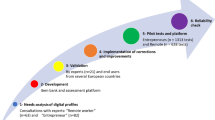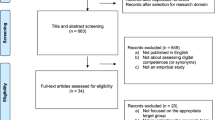Abstract
The assessment of the current situation of digital skills and competencies in a given group is a fundamental issue nowadays. Hence, the purpose of the research study is to address this issue. The research methodology is quantitative, including also a case study experiment and pre and post-questionnaires. To obtain and make use of digital resources, one should own the necessary skills and digital competencies to do so. To specify the key elements of digital competence and the ways to assess it, the European Commission developed a Digital Competence Framework for Citizens – DigComp. The European Computer Driving Licence (ECDL), modules back up all competencies and areas of DigComp, which facilitate the structure in the digital skills area. Based on a developed prototype model which has been evaluated by an expert group, an experiment to assess the digital skills and competencies of high school and undergraduate students was conducted in the context of the ECDL Base modules. The experts examined the procedure and the list of selected categories, skill sets, and task items included in the prototype model, and assessed if they comply with the word processing syllabus. After the experiment, we used the statistical analyses to find cross-tabulation of self-evaluation questions within the level of education from tasks devised. The experiment revealed digital literacy levels of students and pointed out the areas that require improvement. It also compared the self-evaluated levels and the actual task experiment results of the students. This comparison showed that self-evaluation is not a proper way to evaluate the digital skills and competences of individuals in general. The study proved that there is a high discrepancy between the self-evaluation and actual evaluation results of the assessment groups.
Access this chapter
Tax calculation will be finalised at checkout
Purchases are for personal use only
Similar content being viewed by others
References
Kemp, S.: Digital 2020: Global Digital Overview. Datareportal.com (2020). https://datareportal.com/reports/digital-2020-global-digital-overview. Accessed 30 Jan 2020
The Digital Economy and Society Index (DESI) (2019)
Ferrari, A.: DIGCOMP: A Framework for Developing and Understanding Digital Competence in Europe. Publications Office of the European Union, Luxembourg (2013). https://doi.org/10.2788/52966
ECDL Foundation, The Fallacy of the ‘Digital Native’. www.icdl.org
Jashari, X., Fetaji, B., Nussbaumer, A., Gütl, C.: (Accepted/In press). Assessing digital skills and competencies for different groups and devising a conceptual model to support teaching and training. In: Proceedings of ICBL 2019 Springer (2019)
Vuorikari, R., Punie, Y., Gomez, S., Van Den Brande, G., et al.: DIGCOMP 2.0: The Digital Competence Framework for Citizens. Update Phase 1: The Conceptual Reference Model. Publications Office of the European Union, Luxembourg (2016). https://doi.org/10.2791/11517
Carretero, S., Vuorikari, R., Punie, Y., et al.: DigComp 2.1: The Digital Competence Framework for Citizens with Eight Proficiency Levels and Examples of Use. Joint Research Centre. Publications Office of the European Union, Luxembourg (2017). https://publications.jrc.ec.europa.eu/repository/bitstream/JRC106281/web-digcomp2.1pdf_(online).pdf
ECDL Foundation, ECDL and DigComp–Describing, Developing and Certifying Digital Competence. https://icdleurope.org/policy-and-publications/icdl-and-digcomp. Accessed 10 May 2020
ECDL Foundation, WORD PROCESSING Syllabus 6.0 Syllabus Document. https://icdl.sharefile.com/share/view/sf48c8f169a14846b. Accessed 15 May 2020
Author information
Authors and Affiliations
Corresponding author
Editor information
Editors and Affiliations
Rights and permissions
Copyright information
© 2021 The Author(s), under exclusive license to Springer Nature Switzerland AG
About this paper
Cite this paper
Jashari, X., Fetaji, B., Nussbaumer, A., Guetl, C. (2021). Devising a Prototype Model for Assessing Digital Competencies Based on the DigComp Proficiency Levels. In: Auer, M.E., Centea, D. (eds) Visions and Concepts for Education 4.0. ICBL 2020. Advances in Intelligent Systems and Computing, vol 1314. Springer, Cham. https://doi.org/10.1007/978-3-030-67209-6_1
Download citation
DOI: https://doi.org/10.1007/978-3-030-67209-6_1
Published:
Publisher Name: Springer, Cham
Print ISBN: 978-3-030-67208-9
Online ISBN: 978-3-030-67209-6
eBook Packages: Intelligent Technologies and RoboticsIntelligent Technologies and Robotics (R0)




